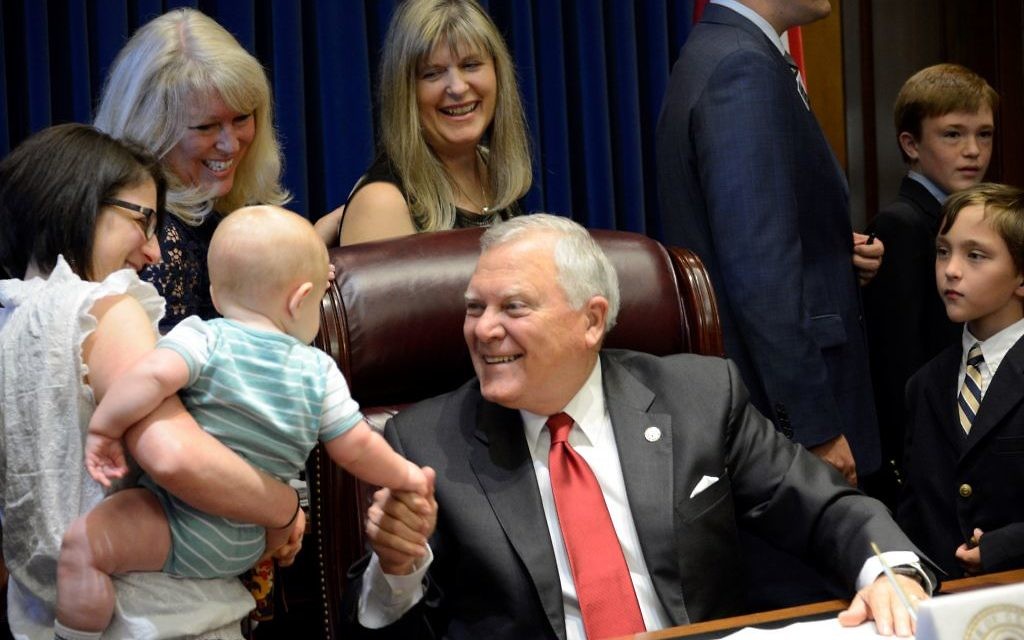Moms on Hearing Mission Make Legislators Listen
Years-long fight by Sara Kogon and Kelly Jenkins helps win hearing aids for Georgia children who need them.

Georgia Gov. Nathan Deal signed legislation Monday, May 8, requiring insurance companies to cover hearing aids for children after a long, difficult effort by two mothers to make such health insurance coverage standard.
Sara Kogon and Kelly Jenkins, both of whom have hearing-impaired children, struggled for more than six years to enact a law to help kids like theirs.
Kogon’s son Gerald, now 7, failed three newborn hearing screenings at Northside Hospital and was diagnosed with mild to moderate hearing loss.
Get The AJT Newsletter by email and never miss our top stories Free Sign Up
“We never had it in our family. It was very traumatic for all of us. You take a lot for granted, I think, when having babies,” Kogon told the AJT.

“I called the insurance company, but they told me hearing aids weren’t covered because they were considered a cosmetic device,” the Jewish community member said. The company told her it would be better if she allowed Gerald to go completely deaf because then he could get cochlear implants, which would be covered.
“Are you kidding me? I thought that was absolutely ridiculous,” Kogon said. “If you do not stimulate the nerve for hearing, eventually they go deaf. A cochlear implant is what you give a child when they are totally deaf. You’ve destroyed the nerve through lack of stimulation, so they do brain surgery. They said, ‘Sorry, that’s the best we can do.’ ”
Jenkins, mother of Sloane, also 7, was equally infuriated with the system, Kogon said. The two met at the Atlanta Speech School, which their children attended; the women became friends and decided to fight back.
“We bonded immediately. We joined forces and said, ‘We’re going to fix this,’ ” Kogon said. “The whole goal was to get insurance companies to cover the hearing needs of children.”
Hearing aids typically cost $6,000 and must be replaced every three to five years. “We were so lucky to be able to provide that for Gerald,” Kogon said, but most parents can’t afford it. “This has to change. We want everyone to have that.”
Kogon and Jenkins created Let Georgia Hear, a resource center for parents that other states now use as a model, and they began pressuring legislators at the local and state levels for changes in the law, all while being full-time mothers to their other kids as well.
“We started going to the Capitol, to sessions, making inroads, friends,” Kogon said. “We had no idea. We were just two moms. We were like lobbyists, but not paid, obviously.”

With help from Sen. P.K. Martin (R-Lawrenceville) and Rep. Penny Houston (R-Nashville), Senate Bill 206, known as Jack’s Law after Atlanta teenager Jack McConnell, this year passed the House on a vote of 155-5 and cleared the Senate on a vote of 57-6.
The Hearing Aid Coverage for Children Act will take effect Jan. 1, 2018.
Their work is not done, however, Kogon said. “It takes more than a hearing aid to teach a child how to speak. Is it a traveling audiology booth, a networking system for parents on training, resources for listening and spoken language? We are looking at ways to bring these services to rural counties.”




comments